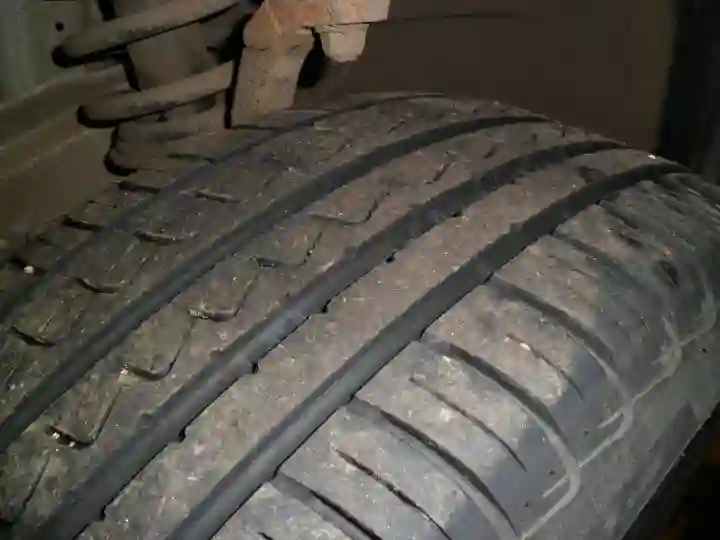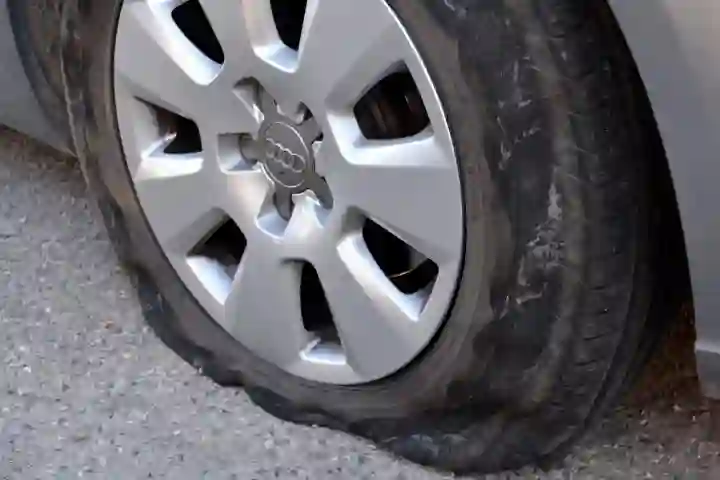The Dark Psychology of Slashing Tires - Decoding the Motivations Behind this Destructive Behavior
Updated on 6th April, 2023
What is the psychology of slashing tires?
When it comes to the act of slashing tires, most people's first thought is that it is a senseless and destructive behavior. However, there is a psychology behind this behavior that sheds light on why some individuals resort to such actions.
The psychology of slashing tires is rooted in a range of emotions, such as anger, frustration, jealousy, or revenge. For some, the act of slashing tires can provide a sense of release from negative emotions. It can also serve as a form of retribution against someone who has wronged them, or as a way to assert power and control over others.

Studies have shown that individuals who engage in tire-slashing behavior often have a history of impulsive and aggressive behavior. They may also have a tendency to experience difficulty regulating their emotions, leading them to act out in destructive ways. Additionally, individuals who feel a sense of powerlessness or lack of control in their lives may resort to tire slashing as a way to gain a sense of control and dominance.
It's essential to recognize that tire slashing is not an acceptable behavior and can cause significant harm to both individuals and communities. Instead, it's important to find healthy ways to cope with negative emotions and address conflicts constructively. Understanding the psychology of slashing tires can help us better address the underlying issues and work towards finding more productive and positive ways to address our emotions and conflicts.
Why do people slash tires?
Tire slashing is a deviant behavior that involves the deliberate act of puncturing, cutting, or slashing the tires of a vehicle. This destructive behavior can be motivated by a range of underlying factors, including anger, frustration, revenge, jealousy, or a desire for control. One of the most common reasons why people slash tires is as a form of retaliation against someone who has wronged them. For instance, an individual who has been the victim of a perceived injustice or insult may resort to tire slashing as a way to seek revenge or assert their power.

In some cases, tire slashing may also be a manifestation of an underlying psychological disorder, such as conduct disorder, antisocial personality disorder, or borderline personality disorder. These individuals may have a history of impulsive and aggressive behavior and may lack the skills to manage their emotions effectively. Additionally, environmental factors such as poverty, social isolation, and exposure to violence may also contribute to the occurrence of tire slashing. For instance, individuals living in neighborhoods with high levels of crime and violence may view tire slashing as an acceptable form of retaliation or self-protection.
It's crucial to recognize that tire slashing is a harmful behavior that can result in significant financial and emotional harm to the victim. Its's essential to address the underlying factors that contribute to tire slashing and work towards finding constructive and positive ways to manage conflicts and emotions.
What to do if someone slashed my tires?
Discovering that your tires have been slashed can be a frustrating and upsetting experience. If you find yourself in this situation, there are several steps you can take to address the issue and minimize the damage. First, it's essential to document the damage by taking photos of the affected tires and noting the time and location of the incident. You should also contact the police and file a report, as tire slashing is a criminal offense.

Next, you should contact your insurance company and report the incident. Depending on the coverage you have, your insurance company may cover the cost of repairs or replacement. If you don't have insurance coverage or if your insurance doesn't cover the full cost of repairs or replacement, you may need to pay out of pocket. In this case, it's essential to get a quote from a reputable mechanic or tire shop and keep all receipts and invoices for your records.
It's also a good idea to inform your neighbors and local law enforcement of the incident. This can help raise awareness and potentially deter future incidents. Lastly, it's important to take care of yourself emotionally. Discovering that your property has been damaged can be a stressful and traumatic experience. Reach out to friends, family, or a professional counselor for support and take steps to prioritize your emotional well-being.
Further Analysis on the Psychology of Slashing Tires
The psychology of slashing tires is a complex and multifaceted issue that is influenced by a range of individual and environmental factors. Some research suggests that individuals who engage in tire-slashing behavior may have a history of trauma or abuse, which can lead to a sense of powerlessness or helplessness. Other studies have found that tire slashing may be related to a need for attention or validation, with some individuals engaging in this behavior as a way to get noticed or to feel important. Additionally, feelings of envy or jealousy may also contribute to tire slashing, as individuals may feel a sense of competition or resentment towards others.
Individuals who engage in tire slashing may also have underlying psychological issues that need to be addressed. For instance, some individuals may have a history of aggression or impulse control problems, which can lead to destructive behavior like tire slashing. Others may struggle with emotional regulation or may have difficulty expressing their emotions in healthy ways. Environmental factors such as poverty, social isolation, and exposure to violence may also play a role in the occurrence of tire slashing. For instance, individuals living in high-crime neighborhoods may view tire slashing as a way to protect themselves or their property from harm.

To address the psychology of tire slashing, it's essential to focus on prevention and intervention efforts. This may involve addressing underlying psychological issues, providing education and resources to individuals at risk of engaging in tire slashing, and creating safe and supportive communities that discourage destructive behavior. It's also important to recognize that tire slashing is a harmful behavior that can have significant consequences for both the perpetrator and the victim. By understanding the psychology of tire slashing, we can work towards developing more effective and compassionate approaches to preventing and addressing this behavior.
How does slashing a tire affect the victim?
Slashing a tire can have a significant impact on the victim, both emotionally and financially. From an emotional standpoint, tire slashing can leave individuals feeling violated, vulnerable, and anxious about their safety and security. Discovering that someone has intentionally damaged their property can be a traumatic and unsettling experience, and may lead to feelings of anger, frustration, or powerlessness. In addition to the emotional impact, tire slashing can also have significant financial consequences for the victim. Depending on the extent of the damage and the type of tire that was slashed, repairs or replacement may be costly. This can be particularly burdensome for individuals who may not have insurance coverage or who may have limited financial resources.

Furthermore, tire slashing can also result in lost time and productivity, particularly if the individual needs to take time off work to deal with the issue. The victim may also need to spend additional time and money on preventative measures, such as installing security cameras or hiring private security, to prevent future incidents from occurring. Beyond the immediate financial and emotional impact, tire slashing can also have longer-term consequences for the victim's sense of safety and well-being. The victim may become more cautious or fearful about leaving their vehicle unattended, and may experience ongoing stress or anxiety as a result of the incident.
Conclusion on the Psychology of Slashing Tires
In conclusion, the psychology of slashing tires is a complex issue that is influenced by a range of individual and environmental factors. While some individuals may engage in this behavior as a way to gain attention or power, others may do so as a result of trauma, aggression, or underlying psychological issues. Regardless of the motivations behind tire slashing, it's clear that this behavior can have significant consequences for both the perpetrator and the victim. For the victim, tire slashing can lead to feelings of violation, vulnerability, and financial burden, as well as longer-term impacts on their sense of safety and well-being.
To address this issue, it's important to focus on prevention and intervention efforts that address the root causes of tire slashing, such as trauma, aggression, and social isolation. It's also essential to provide support and resources to those who have been impacted by tire slashing, including emotional support, financial assistance, and preventative measures. Ultimately, by understanding the psychology of slashing tires and taking proactive steps to prevent and address this behavior, we can create safer, more supportive communities for everyone.